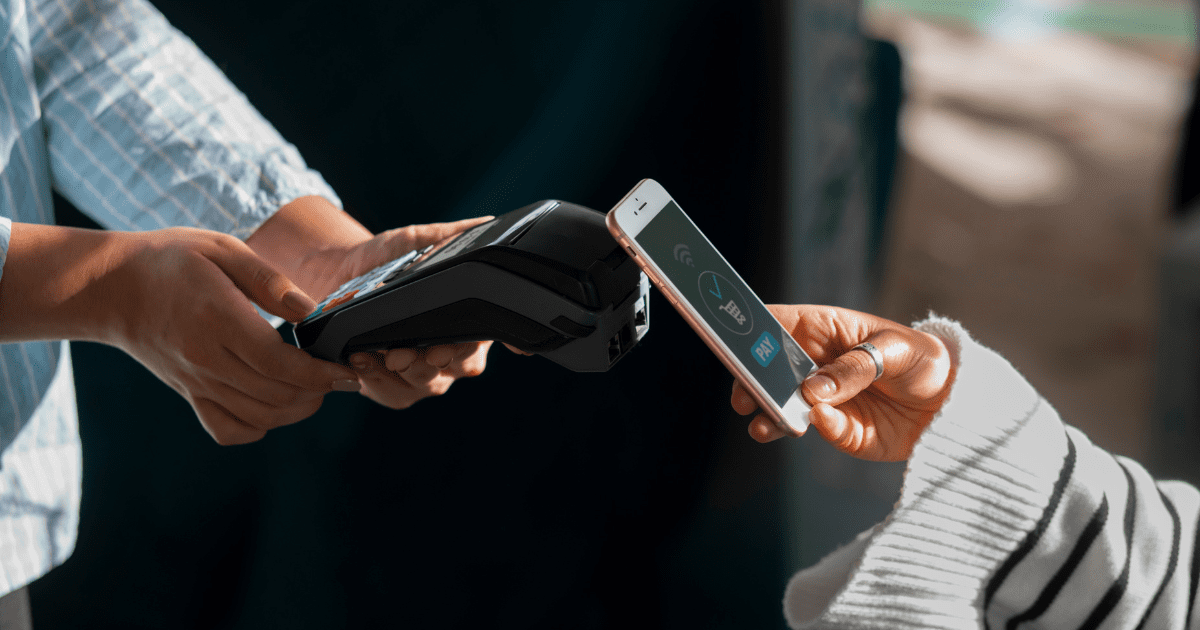
Today’s fast-paced world is quite different from the days when carrying cash or debit cards was more common. Digital and mobile wallets are gaining larger market shares, making traditional wallets almost obsolete. To bring more clarity, which is more beneficial: digital or mobile wallets?
The debate between digital wallets and mobile wallets has been long-standing, with each having its pros and cons. Digital wallets offer convenience and security, while mobile wallets provide greater versatility and accessibility. So, what distinguishes the two?
This article will explore digital and mobile wallets, weigh their pros and cons, and help you make a wise choice for your needs. So, let’s begin and find out which wallet wins the battle.
What is a Digital Wallet?
A digital wallet is an application that lets you store your payment methods like credit cards, debit cards, and bank account information all in one digital space. You can use it on devices like smartphones, tablets, or computers. This way, when you need to pay for something—whether online or in a store—you can simply use the digital wallet instead of carrying your physical cards around.
What is a Mobile Wallet?
A mobile wallet is a type of digital wallet specifically designed for use on mobile devices like phones and tablets. The main idea is the same: you store your payment information in an app, loyalty cards, and other essential items in a single location. But it’s optimized for mobile use, often taking advantage of features like tapping your phone to a payment terminal to complete a transaction.
Digital Wallets vs Mobile Wallets
Digital wallets can be used on computers, mobile devices, and other devices. For instance, PayPal is a digital wallet that can be accessed via computer and mobile app.
Mobile Wallets, on the other hand, are primarily used on mobile devices and often include features specific to mobile usage, like paying via NFC (near-field communication) technology. Examples include Apple Pay, Google Wallet, and Samsung Pay.
So, while all mobile wallets are digital wallets, not all digital wallets are mobile wallets. Mobile wallets use mobile technology to make payments easier and faster on the go, whereas digital wallets have broader functionality and can also be used from non-mobile devices.
What are Digital and Mobile Wallets Used For?
Popular uses of digital and mobile wallets are:
- Online Purchases: You can shop online with digital and mobile wallets without having to re-enter your payment info every time.
- In-Store Purchases: Many stores now allow mobile wallet payments in-store. Digital wallets use Bluetooth and Wi-Fi to safely and conveniently make payments.
- Peer-to-Peer Payments: With apps like PayPal, you can send money to friends or pay someone back easily. Also, you can scan QR codes with your mobile device’s camera to send or receive money securely.
- Loyalty Cards and Coupons: Digital wallets help in an easy way to track rewards and discounts by storing loyalty cards and coupons. They update automatically and send reminders, so you are never at risk of missing out on earning or redeeming rewards.
Digital and Mobile Wallets: Types and Examples
The most popular types of digital and mobile wallets include:
- Mobile Payment Applications: Apps like Apple Pay and Google Pay let you store your payment info on your phone, so you can easily pay in-store or online just by using your mobile device.
- Self-Checkout Systems: Services such as PayPal, Skrill, and Neteller permit users to store their payment details and buy things online.
- Bank Mobile Applications: Many banks now have their apps where you can store your payment information and manage transactions right from your phone.
- Cryptocurrency Wallets: Platforms like Coinbase and Binance help you store and manage your cryptocurrency.
Pros and Cons of Digital Wallets
The most commonly discussed pros and cons of digital wallets are:
Pros of Digital Wallets
- Ease of Use: You can ditch physical cards and cash, as all your payment details are neatly packed into one app, ready for both online and in-store shopping.
- Better Security: Digital wallet apps are protected by encryption for security and are, therefore, more secure than physical cards and less susceptible to fraud and theft.
- Wide Accessibility: Digital wallets are available on many devices like smartphones, smartwatches, and laptops. This has made them widely accessible to many people.
Cons of Digital Wallets
- Not Accepted Everywhere: Not all shops are on board yet. You might find places where digital wallets don’t work.
- Occasional Technical Glitches: Digital wallets can sometimes be troublesome, with technical glitches and slow processing times being common issues. These problems can often be a headache for users.
- Relies Heavily on Tech: No internet? Big problem. You need a solid connection to use digital wallets effectively.
Pros and Cons of Mobile Wallets
Here are the primary pros and cons of mobile wallets:
Pros of Mobile Wallets
- Always Ready on Your Phone: Your payment info is always at your fingertips, right on your smartphone—perfect for quick purchases anywhere.
- Access Anywhere You Go: Mobile wallets provide more accessibility than digital wallets since smartphones are always on hand for most people.
- Loyalty Cards and Coupons: Mobile wallets let you store all your loyalty cards and coupons in one place, so keeping track of your rewards and discounts is a breeze.
Cons of Mobile Wallets
- Not Accepted Everywhere: Similar to digital wallets, mobile wallets are also not accepted in all places, which can restrict their usefulness.
- Security Risks: Mobile wallets can be targets for hackers and malware, putting your personal and financial info at risk.
- Dependence on Technology: Just like digital wallets, mobile wallets also rely on a good internet connection to function properly.
Factors to Consider When Choosing the Right Wallet
When selecting the right digital or mobile wallet, it’s important to consider factors that fit your needs perfectly.
- Start by checking compatibility. The wallet should work smoothly with your device and its operating system.
- Make sure the accepted payment methods support all the cards and accounts you intend to use, including any interest you may have in cryptocurrencies.
- Security features are non-negotiable. Opt for wallets that provide strong encryption, two-factor authentication, and biometric safeguards like fingerprint or facial recognition to protect against fraud.
- Look for ease of use. An intuitive interface makes daily operations straightforward.
- Consider the merchant acceptance rate of the wallet. Is it ideal for use at your regular shops and online?
- Pay attention to any fees associated with transactions, card additions, or money transfers, which often differ between services.
- Keep an eye on customer support. Is it reliable and responsive?
- Lastly, the reputation of the provider should be solid—research user reviews and expert feedback to gauge overall reliability and customer satisfaction.
Which Wallet is Right for You?
Digital wallets’ versatility makes them ideal for those who use a variety of gadgets. They are suitable for handling complex financial operations and multiple currencies. However, their availability on multiple devices makes them more vulnerable to security concerns and could be quite challenging to use if you are not tech-savvy.
Mobile wallets are designed specifically for smartphones and make it simple to pay while on the go. They employ your phone’s security capabilities, like biometrics, to ensure safe transactions. The disadvantage is that they rely solely on your phone; thus, no phone means no access to your wallet.
Choosing between the two is entirely dependent on your requirements — whether you value extensive access and financial features or prefer ease and security on the go.








